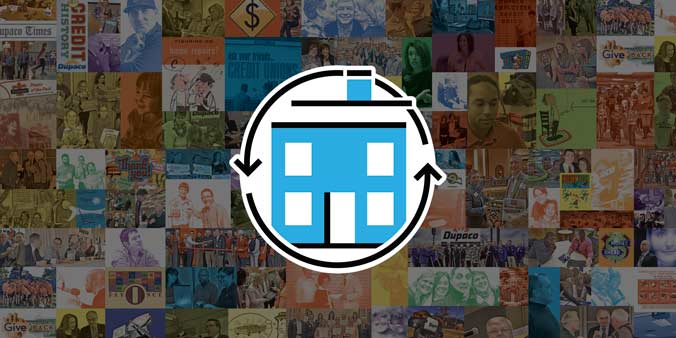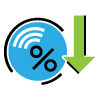
How do you determine if it’s worth refinancing your home loan?
Your home loan payments likely eat up a good chunk of your monthly expenses. But sometimes, there’s an opportunity to refinance your loan (think of it as a do-over) to help you either save money or reach other goals.
As a homeowner, it’s good to ask yourself this question from time to time: Is it worth refinancing my home loan?
How a home refinance works
When you refinance your home loan, you’re essentially swapping your current home loan with a new one.
You take many of the same steps that you did when you applied for your original loan—except this time, you don’t have to move!
Many homeowners think about refinancing when interest rates drop or their needs have changed. Refinancing your home loan isn’t right for everyone, though. Learn the benefits of refinancing, when it makes sense (and doesn’t make sense) and how to get started.

Benefits of refinancing
As a homeowner, you’ll typically refinance your loan for one of these reasons:
Use equity from your home for cash
If you’re trying to consolidate debt or pay for a larger expense, you might be able to borrow from the equity you’ve built up in your home. (Equity is the part of the house that belongs to you, not your lender).
With a cash-out refinance, you replace your existing home loan with a larger one, and you receive the difference in cash. You get the money in a lump sum, and you can use it toward whatever your goal is—debt consolidation, a home remodel, you name it.
It’s an alternative to a home equity line of credit or a home equity loan. (Learn how these work here.)
Dupaco Community Credit Union’s Krystal Frederick said using a cash-out refinance to combine multiple debts into one might provide you with a lower interest rate, lower monthly payment or both—with the convenience of only one monthly payment.
“Many homeowners who do a cash-out refinance combine their payments for a shorter term and a higher monthly payment so they can pay that debt off faster,” she said.
In time, this can help you build your credit too.
But a cash-out refinance won’t ultimately put you in a better position if you then take on new debt.
Wondering if a refinance is right for you? Let’s figure it out together
Reduce your interest rate
Many homeowners refinance their home loan into a lower-rate loan. A lower interest rate can save you money over the life of the loan, because more of your payments can go toward the principal instead of toward interest.
This can help you build equity in your home faster.
Frederick said this old rule of thumb can be a good starting point: It often makes sense to refinance if you can reduce your interest rate by at least 1%. But not every situation is the same. Sometimes, even 0.5% can make a big difference in your monthly payment.
 Lower your payments
Lower your payments
A lower interest rate might also lower your monthly payments—sometimes saving you hundreds of dollars each year. This can free up room in your budget to put more money toward your other goals.
Frederick said it typically makes sense to refinance if you can cut your monthly payments by at least $100.
With our free home refinance calculator, you can see how refinancing would impact your monthly payment and overall loan costs.
Try our free home refinance calculator
Shorten your loan term
When you refinance, you might be able to shorten your loan term, allowing you to be debt-free sooner.
Depending on your situation, refinancing into a shorter term could either:
“If you can refinance into a shorter term and keep your payment the same, it would be worth it!” Frederick said.
Reduce your private mortgage insurance
If you have to pay private mortgage insurance as part of your home loan, refinancing might help you eliminate or reduce this extra payment as well.
Remember: These premiums were triggered based on your credit score and your down payment when you bought your home. This insurance kicks in when your down payment is less than 20% of your home’s purchase price. (It protects the lender in case you default on your loan.)
But now that you’ve been a homeowner for a while, your home’s value might have increased and you might have more equity in your home. When this happens, you have an opportunity to either reduce or eliminate your private mortgage insurance!

Get a loan that better fits your needs
You might also want to refinance to get into a home loan that better fits your needs today.
Maybe you purchased your home using an adjustable-rate mortgage. Today, you might want the predictability of a fixed-rate loan where your interest rate stays the same.
Or maybe you’d like to move your home loan to another lender. If keeping your loan in-house with your lender is important, ask the lender questions to understand what will happen with your loan after you refinance it.
Hint: Unlike some lenders, Dupaco will never outsource the servicing for your loan. From application to closing, payments and beyond, your loan stays with Dupaco!
Have questions about refinancing? Let’s talk!
Is it worth refinancing?
Refinancing can be a great option if it saves you money, shortens your loan term or helps you in another way.
But it’s important to weigh several factors when deciding whether to refinance your home loan.
“There are so many variables and scenarios that go into determining when a refinance is a good fit,” Frederick said.
Your credit score will be considered to determine whether you qualify to refinance your loan.
And just like with your original home loan, it costs money to refinance. You pay closing costs during the process. Ask your lender what you can expect to pay to refinance your loan. And know that it will take time to recoup those fees before you ultimately benefit from any savings.
If you’re planning to sell your home soon, you might not have a chance to recoup those refinancing expenses.
The good news is that you can calculate your potential savings before you apply. With our free home refinance calculator, you’ll see how refinancing would impact your monthly payment and overall loan costs.


